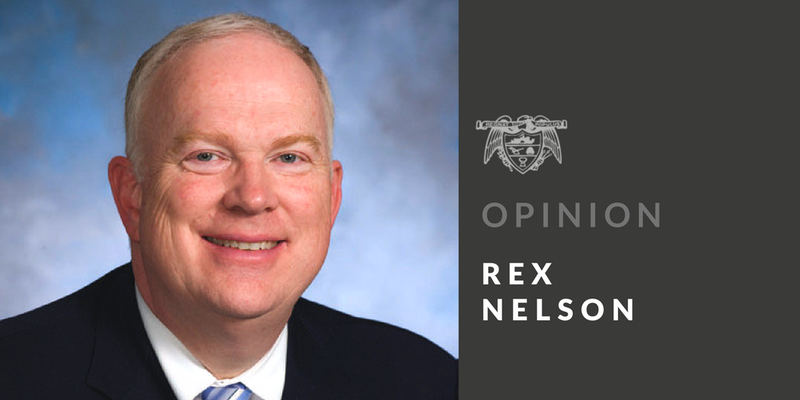The conversations were enlightening as we gathered on a regular basis for luncheons sponsored by the Central Arkansas Library System. I worked with Nate Coulter, the CALS director, and Andrew Rogerson, the chancellor of the University of Arkansas at Little Rock, to co-host these meetings. Our hope was to come up with ideas to present to Little Rock's new mayor.
I've often written that the fate of the state's largest city affects residents in all 75 counties of Arkansas. The state will never achieve its potential if its capital city isn't doing well. While we were holding these meetings, The New York Times published an article comparing the recent histories of Birmingham, Ala., and Nashville, Tenn. Those cities were about the same size in the late 1970s. Since then, Nashville has doubled in population, and Birmingham has lost tens of thousands of residents.
Across the country, cities are becoming grouped into "haves" and "have nots." According to the CALS summary of our luncheons: "The fundamentals that typically allow a city to become a 'have' are in place in Little Rock, but some of them are in jeopardy. We need to take quick action to preserve the city's potential."
The business, nonprofit, government and other leaders who attended the sessions came up with six priorities for Little Rock. They are:
• Promoting the understanding that a strong Little Rock is essential to a strong Arkansas. We must inform people statewide about the consequences of not building a healthy Little Rock. Central Arkansas leaders need to leverage their collective influence to inform state legislators about the risks of not properly supporting UALR and the University of Arkansas for Medical Sciences. In many cities, the chief barrier to economic progress is the lack of a research university. Little Rock has UALR and UAMS, but state support for those institutions has been falling for years. Central Arkansas legislators must inform their colleagues of the consequences of not helping build intellectual capital in the capital city.
• Uniting diverse community interests so they can promote good news about Little Rock. It's time to push back against the numerous inaccurate perceptions outside the city. Crime coverage on television, for example, doesn't reflect the daily experiences of those who call Little Rock home. Residents of bedroom communities have a perception of Little Rock that's far from the truth. The fact is that life in Little Rock has never been better when it comes to things such as the food scene, the live music scene, the craft brewing culture, the number of free lectures, etc.
• Developing a corridor from UALR to UAMS to downtown that's a recreational, dining and living destination. It's time to bring residents back to the central part of the city. The area around UALR should be branded as the University District with ample signage along streets in the district. UALR must develop better pedestrian access with additional sidewalks and underpasses that allow students to walk to retail areas near the university. More public-private partnerships are needed in the University District. Better street lighting is also crucial. According to the CALS report: "When young professionals move here, they tend to move to places like Benton or Maumelle. They become part of the doughnut of preferred suburban areas that leaves underutilized residential areas in the middle of the city."
• Changing from a zero-sum mentality to an approach that's marked by teamwork among the business community, grass-roots organizations and the city's major institutions. A zero-sum mentality that one neighborhood's gain is another's loss has been holding Little Rock back. In thriving cities, you'll find that people in every neighborhood are unified behind common goals.
• Building trust between city government and residents. Too often, bureaucratic delays stall development efforts. We were told over and over in these luncheons that the various departments of city government have no sense of urgency when it comes to achieving satisfactory results for Little Rock residents. Voters won't approve a higher sales tax until they have confidence that the city will deliver on promised benefits. That hasn't always happened in the past.
• Fostering a climate that's open to young talent. These are the people who will drive the economy of the future. I found that the younger members of the luncheon groups were more optimistic than the older attendees. It's time to give more responsibility to young people who can match the energy of the city's 35-year-old mayor.
"We can be a model for the country," Mayor Frank Scott says. "As a former banker, I realize how important it is to create a place where business owners can thrive."
Scott, who has been in perpetual motion since taking office on Jan. 1, has a lot he wants to accomplish. He wants to see a beautiful corridor from the airport to downtown that will impress visitors. He wants to see the transformation of War Memorial Park into a true central gathering spot for Little Rock residents, the construction of a youth sports complex that will attract large tournaments, thriving institutions of higher education (including the city's two historically black institutions, Philander Smith College and Arkansas Baptist College) and development of the federally designated Opportunity Zones.
"The mayor has to be the chief economic development officer," Scott says. "I'm not going to cede that role to any outside group."
------------v------------
Senior Editor Rex Nelson's column appears regularly in the Arkansas Democrat-Gazette. He's also the author of the Southern Fried blog at rexnelsonsouthernfried.com.
Editorial on 04/24/2019
